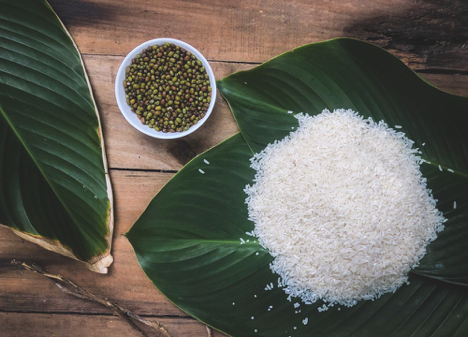By Simone de Villiers
Travelling from Australia to India for my first 200hr yoga teacher training course, I felt nervous about my belly. So I drank all the kombucha before I left and stocked my bags with probiotics and Imodium to make sure I’d be able to cure any “Delhi Belly” I may encounter. Who knew that I was going to leave my school, Gyan Yog Breath in Rishikesh, feeling healthier (and fuller) than ever.
In the town of Rishikesh, the birthplace of yoga, everything is vegetarian. Previously a meat-eater, I was uneasy about the idea of just eating veggies and carbs for a month. I thought that having a meatless diet would leave me less energetic than usual. But the total opposite happened. I noticed that my mood improved, I was less bloated, I slept better and I was more energized.
The school had chefs dedicated to feeding us two vegetarian meals each day that incorporated Ayurvedic ingredients. Each meal was freshly prepared with the intention of calming the functions of the mind and filling the body with life force energy, prana. They had taught us that the ideal yogic diet is one that does as little harm as possible and makes you feel good physically and emotionally.
Eating right is an essential activity for your yoga practice, so here are a few tips on the types of foods and Ayurvedic principles that you can bring to the table as a yogi.
- Fresh fruit and vegetables

Always try to prepare a fresh meal with fresh, locally sourced fruit and veggies. Be sure to take note of what foods are in season where you’re living. Having a healthy mix of vegetables and fruits in your diet gives you all the healthy antioxidants and immune boosting nutrients your body needs for your yoga practice.
- Herbal Teas

Herbal teas tend to contain herbs such as black pepper, cinnamon, ginger, cardamom and turmeric, which all help boost the body’s immune system and improve metabolism.
Some popular ones to try before or after your practice are peppermint, chamomile, green, and ginger and lemon tea.
- Legumes and grains
Rice, chickpeas, lentils, beans, peas and so many more.

Legumes and grains are easy to digest and provide your body with a great source of protein alternative to meat.
4. Water
Hydration before, during and after yoga practice will make you perform better, increasing strength and flexibility. It is great for helping us to detox our bodies and provides us with the oxygen we need to maintain clarity and focus throughout our practice.
5. All the spices like ginger, cumin, turmeric and fresh herbs
Herbs and spices directly support the mind and also make your food taste delicious. According to Ayurveda, spices act as healing foods that support a healthy body and stimulate its repair and rejuvenation.

Our nutrition works the same way as our asana practice, and it’s just as important. The same way that each of our individual practices differs, so do our dietary requirements and our individual idea’s about what is right and wrong when it comes to food. There is no specific diet that is suitable for all of us; however, incorporating the foods above will help to make you feel good, physically and emotionally. As long as you have a healthy relationship with food, and not overly restrictive in giving your body what it needs, your mind, body and spirit can all positively function together.
———————
Editor’s note: This is a guest post by Simone de Villiers. Inspired by her education, experiences and travels, Simone is passionate about all things well-being. Her passion for yoga, Ayurveda and wellness led her to Gyan Yog Breath in India (www.gyanyogbreath.com), where she became enthusiastic about promoting holistic health. Alongside freelancing, she has recently started teaching yoga in Sydney.

